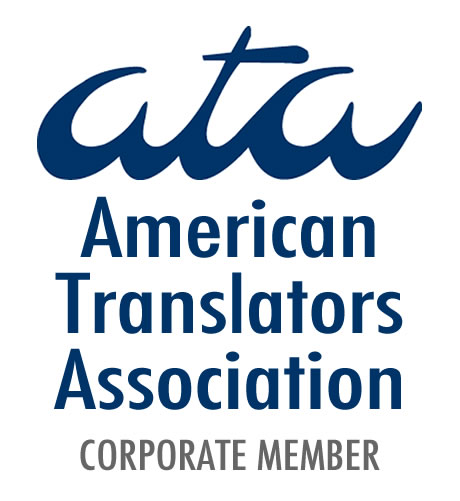
Avoid Translation Job Scams: 5 Red Flags Every Translator Should Know
As a freelance translator, you’ve likely encountered the vast world of online translation job listings, and with it, the potential for finding great opportunities. However, for every legitimate job offer, there’s a chance that a sketchy job offer lurks nearby. In today’s digital age, the rise of online scams targeting freelancers has led many translators to question how they can distinguish between trustworthy job offers and fraudulent ones. Whether you’re just starting out as a freelancer or have years of experience under your belt, knowing how to spot a scam is crucial.
In this article, we will discuss five key red flags that every freelance translator should be on the lookout for when searching for jobs. By understanding these warning signs, you can avoid translation job scams and protect yourself from wasting time on fraudulent opportunities.
Why Translation Job Scams Are On the Rise
The translation industry, like many other sectors, has experienced rapid growth due to globalization and the increasing demand for multilingual content. As a result, it’s also become a prime target for scammers looking to exploit freelancers. Freelance translators are particularly vulnerable because of the nature of the gig economy, where many translators work independently and have fewer safeguards compared to traditional employment.
Scammers prey on translators by offering jobs that seem too good to be true—often with promises of high pay for relatively simple tasks. They may also create a sense of urgency, pressuring you to act quickly before you have time to fully investigate the offer. This can be especially tempting for new freelancers who are eager to build their portfolio or seasoned translators looking for a steady stream of work.
Unfortunately, many freelancers fall victim to these scams, losing both time and money in the process. However, by staying vigilant and learning how to identify freelance translator red flags, you can protect yourself from these risks.
Red Flag #1: Unusually High Payment Promises
It’s no secret that everyone wants to get paid well for their work, but when a job offer promises an unusually high rate for relatively simple tasks, that’s a major red flag. Scammers often lure in translators with the promise of large sums of money for minimal effort. They know that freelancers, especially those just starting out, may be tempted by these promises.
You might come across an offer that asks you to translate a 500-word document, for example, and offers to pay several hundred dollars or more for the task. While high-paying jobs exist, such offers are often rare, especially for a job that doesn’t require specialized knowledge or experience. Scammers use these inflated rates to hook you, only to reveal that the job is either non-existent or involves shady practices (like asking for upfront payments).
What You Should Do: Research industry standard rates for various types of translation work. Rates vary depending on language pairs, subject matter, and experience, but being aware of what’s typical in the industry can help you spot scam offers. If the pay is too high for the task at hand, it’s best to be cautious. Trust your instincts, and never hesitate to ask the client for more details before committing.
Red Flag #2: Vague or No Contact Information
Legitimate translation agencies and clients should always provide clear and verifiable contact details. If a job listing comes with a generic email address (like Gmail or Yahoo) or doesn’t provide any contact information at all, that’s a red flag. Scammers often try to conceal their identity, making it difficult for freelancers to track them down if anything goes wrong.
Moreover, when a client is serious about hiring you, they should be transparent about their company and provide you with enough information to verify their legitimacy. If you receive an email or message from someone claiming to be a representative of a company but can’t find any official website or verifiable contact details, it’s time to be suspicious.
What You Should Do: Always check the company’s website and social media profiles to ensure that they’re legitimate. If a company claims to exist but doesn’t have a presence online or provides sketchy contact details, that’s a significant warning. For added peace of mind, search for any reviews or testimonials from other translators who have worked with the company.
Red Flag #3: Request for Payment Upfront
One of the most glaring signs of a translation scam is when the client asks for payment upfront. Legitimate clients, whether they are translation agencies or direct clients, will always pay you after you’ve completed the work. While some may require a deposit for large projects or ongoing work, this is the exception, not the rule.
Scammers, on the other hand, often demand an upfront payment for various reasons—sometimes to “secure” the job, cover “administrative fees,” or pay for “necessary software.” These requests are typically a ploy to get your money without ever delivering any work. In some cases, scammers may even ask for your bank account or payment processing details in exchange for a “job opportunity.”
What You Should Do: Never pay money to secure a job, no matter how convincing the offer may seem. If the job is legitimate, you will be paid after the work is completed. Always review the payment terms before starting any project, and if they ask for an upfront fee, walk away.
Red Flag #4: Unclear or No Contract Agreement
A professional translation job should come with a clear, written agreement or contract. This contract should outline the scope of work, the deadline, the payment terms, and any other important details related to the job. If you’re asked to start work without signing a contract or if the terms are vague, that’s a red flag.
Scammers often avoid formal agreements because it makes it easier for them to avoid responsibility. They may provide minimal information, relying on your eagerness to get started. Without a contract, you have no legal recourse if the job doesn’t go as expected.
What You Should Do: Always request a contract or agreement before starting any job. A clear and written contract is essential to ensure that both parties are on the same page and that you’re protected in case of disputes. If the client refuses to provide a contract or is hesitant about clarifying the terms, consider it a warning sign.
Red Flag #5: Too Many Emails or Requests in a Short Time
Scammers often create a sense of urgency to pressure you into making decisions quickly. If you receive an unusually high volume of emails or requests in a short amount of time, especially if they push you to act immediately, this could be a sign of a scam. They may create a sense of urgency by claiming that there are other translators involved or that the job offer will expire soon.
These types of offers often involve vague details and push you to act quickly without taking the time to thoroughly assess the offer. Scammers thrive on creating pressure and excitement, which prevents you from conducting proper due diligence.
What You Should Do: Take your time to research the offer and resist any pressure to act quickly. If the client insists on urgency, that’s an immediate red flag. Trust your instincts and remember that legitimate opportunities won’t disappear in a matter of hours.
How to Stay Safe in the Freelance Translation Industry
While scams are prevalent, there are also plenty of legitimate translation opportunities out there. By staying vigilant and following these simple steps, you can protect yourself from falling prey to job scams:
- Use Reputable Job Boards: Stick to well-known and trusted job boards and platforms for freelancers. Sites like ProZ, TranslatorsCafe, and Upwork have built-in protections and offer a wide range of job opportunities from reputable clients.
- Ask for References: If you’re unsure about a client or agency, don’t hesitate to ask for references or reviews from other translators. Past experiences can provide valuable insight into the legitimacy of a job offer.
- Trust Your Instincts: If something feels off about a job offer, trust your gut. It’s always better to pass up an opportunity than to risk getting scammed.
- Report Scams: If you encounter a scam, report it to the platform or website where you found the job posting. This helps protect other translators and freelancers from falling into the same trap.
The translation industry offers countless opportunities, but it also presents risks, particularly when it comes to job scams. As a freelance translator, it’s essential to stay vigilant and know how to spot freelance translator red flags. By understanding the five key warning signs outlined in this article, you can protect yourself from falling victim to sketchy job offers and ensure that your freelance career remains both successful and secure.
Remember: trust your instincts, do your research, and always prioritize professionalism and clear agreements. With these precautions, you can enjoy a long and rewarding career in the translation industry without falling prey to scams.











